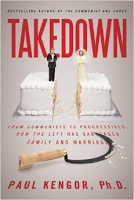Stalin’s policy of Divide and Conquer has been implemented in many different areas and aspects of our society, including a racial division. The events in Ferguson, Baltimore, Wisconsin and Cleveland had confirmed it. It is a continuation of WWIII against America the Beautiful designed by our Founding Fathers. There are several factors that inflamed the predicament, yet nobody is talking about the major one–Stalin’s ideology of Soviet Fascism to obtain control of the local law-enforcement to nationalize and federalize it, like Stalin did in the Soviet Union. Obama began this policy within his first five years–dozens of agencies are being investigated. To know the source of that policy, the Stalin’s era must be studied by the next generations, as Stalin’s socio-political idea impacted the world during the last hundred years. Be prepared for the open season on the policemen and remember the definition of the Soviet Mafia, where politics intertwine with organized crime. The police already feel under the siege. Be prepared for a lot of killings and mob rules in America.
Blacks vs. Whites
It is for a reason, I have started this series with Marxist ideology. Karl Marx’s theory of Socialism and Communism is both a fraud and a utopia. Yet…the idea in the beginning of his historical research of socio-economic stages within the development of civilization was a logical one. While teaching in New York City, I have presented the idea to my students. Baltic Winds, Xlibris, 2002. In short, Marx as a historian was searching for productive forces in history. I accept his theory of history up to his fantasy of Socialism and Communism. As a matter of fact, his idea of productive forces in history maybe actually presents a factual development of the stages within our civilization. It sounded logical and reasonable to me. But I am not a philosopher or sociologist and I will present it in a possibly simplistic way. So…
The primitive men had difficulties in finding food alone. Therefore, human beings created rudimentary form of organization known in the modern terms as tribes to ease their existence. Marx called it the first stage of the human civilization. To achieve more productivity greater numbers of people were organized to create and improve a more productive force. The second socio-economic stage of civilization Marx identified as a slavery. Please keep in mind, the slavery took place worldwide at a certain time, regardless of race, religion, or ethnicity. For your information: slavery or serfdom in Russia was abolished by Alexander II- Liberator in the exact time slavery was abolished by President Abraham Lincoln in the U.S. The next stage of civilization was supposed to provide the huge number of people with food. Marx called the third stage of civilization feudalism–the interactions or contracts between land-lords and vassals in developing the agricultural productive forces to provide the populace with the food. The fourth stage of human civilization was capitalism. To me those stages sounds logical, as they reflect the world history.
The word slavery has been forgotten in Russia, Brazil, and in the rest of the world with homogeneous populations. In America, contrary to the rest of the world the notion of slavery intensified the racial hostility. My explanation is a simple one: None of the other countries of the world had such a visual difference as a COLOR. The COLOR is the inflammatory factor. In addition to that, the majority of the Blacks were brought to America from the second stage of civilization to the forth one, from slavery to capitalism, missing one stage in the development of civilization–feudalism. This is a very important factor. Do not talk to the Black crowd in Ferguson and Baltimore, including the prosecutor of Baltimore, they can’t understand this factor, they need time and the civic education, which Europe went through during 500 years. For them it is easy to destroy, loot, and burn cars than to create and produce. Look objectively at the statistics of crime among Blacks in America. Our homicide rate is equal to that of Yemen. The picture will confirm my point—Blacks are killing Blacks—11 percent of Blacks commit 70 percent of crimes. The role of the police becomes even more significant under these circumstances. Obama’s actions against the police are totally contradictory and inconsistent with the American national interests.
There is another factor that aggravates the racial hostility as well– Stalin’s ideology of Divide and Conquer. With the lack of the historical development in America, Blacks have some resemblance to the Muslim world that has not been reformed since the seventh century. This resemblance is very important as Stalin’s ideology and strategy have been applied to all minorities within Russia and outside the country. The KGB Chairman Yuri Andropov, a devoted Stalin’s disciple created the myth of a “Palestinian Nation” against Israel. One of his statements illustrated it the best: “the Muslims had a taste for nationalism, jingoism, and victimology. Their illiterate, oppressed mobs could be whipped up to a fever pitch. Terrorism and violence against Israel and her master, American Zionism, would flow naturally from the Muslims’ religious fervor.” Russian Footsteps, by Ion Mihai Pacepa, National Review Online, August 24, 2008.)
A couple of days ago, I heard Dr. Ben Carson, a Black candidate of the Republican Party for the presidency of the United States, who said: “My Mother did not want to be a victim.” A victim and victimology are the key words in the resemblance of the big group of the Blacks with the Muslims. The Blacks were indoctrinated by the ideology of Soviet Fascism the same way that the part of the Muslims were indoctrinated for several decades. Ben Carson is a uniquely qualified for the presidency of our country–he is a contemporary Uncle Tom and the majority of Blacks will not vote for him. Of course, there are some differences between the large group of Blacks and Islamic Jihadists, yet both, for different reasons are fighting America the Beautiful. Have you heard the President of Egypt, Abdel Fattah el-Sisi? He, a Muslim himself had admitted that Islam itself has a problem and should be reformed. Have you heard any similar statements from the Black leaders of America? No, on the contrary—division is the only their motive.
Some Blacks called the White people the Oppressors, some are talking about “White Privileges” some “wanted to see cops dead.” I saw them all in Ferguson and Baltimore and I am glad that the notions of “the agents of influence” and the Soviet Mafia, designed by Soviet Fascism are already known to you. If you dig deeper the backgrounds of Sharpton and J. Jackson, you will find their quite strange political connections. Just think and research the root causes and history of the Black movement and you’ll be able to see how all the pieces of the puzzle fit together. I did it in my books discussing Soviet Fascism. All factors mentioned by me, are reinforce one another. Only actual knowledge can solve the problem—both the Blacks and the political Islamite are indoctrinated with totalitarian ideology, I called Stalinism or Soviet Fascism. Knowledge of this ideology is a must.
As a young girl, I read Uncle Tom’s Cabin and the slavery in the far away America, it disgusted me, though it was a story of the past. Yet, it was something, I had never imagined and the negative feeling for slavery was left in my memory forever. Then I did not know that driven by a passionate hatred of slavery, “Bitchier Stow found time to write Uncle Tom’s Cabin, which became the most influential novel in American history and a catalyst for radical change both at home and abroad.” Living in America I found a complete revers of her ideas. Today,” the book has a decidedly different reputation, thanks to the popular image of its titular character, Uncle Tom — whose name has become a byword for a spineless sellout, a black man who betrays his race.”
What do you think? Who divided Black Americans on the crowd of Blacks and a group of Uncle Toms? The crowd of the Blacks, as a rule are not well educated supporters of the Democrats. Who did give the name of the other group of the Blacks Uncle Toms? Who are Uncle Toms? The answer is in the encyclopedia– “A black man who will do anything to stay in good standing with “the whites.” For me it is a good characterization of the group, the group is for unity with the rest of America. The group comprised of the educated Blacks is predominantly Republican. The unity bequeathed by the Founding Fathers is a must for them. Yet our Unity is the crux of the matter for those who are implementing the ideology of DIVISION. The division is not only racial, but more of an ideological one. “Black citizens appear to conclude that they do not share common political values with Republicans, whether black or not,” said the study. “As a consequence, black Republican candidates simply do not evoke the same response from black citizens as black Democratic candidates.” Do you recognize the division, the ideology of Soviet Fascism perpetrated by the Democrats making Blacks the victims of the society? Read more here.
 Excerpts from Cuba Mi Patria Que Adoro, Amazon.com, 2012, P. 108. Translated by. Angela M. Aguirre, Ph.D.:
Excerpts from Cuba Mi Patria Que Adoro, Amazon.com, 2012, P. 108. Translated by. Angela M. Aguirre, Ph.D.:
Those unsuspecting Cubans
That helped the traitor Fidel
They brought together with him
The horrendous communism….
He [Castro] urged blacks to start a fight
Against white with such hatred
Thus turning the whole society
Into a racial war.
The jackal came out of Oriente
To disunite all the Cubans
That were like brothers and sisters
Blacks and whites, all united.
We all lived in harmony
Like lawful citizens should.
But he brought much more:
He brought many criminals
From Russia and other countries,
To govern in our Cuba.
In his intent in punishing us,
He destroyed our nation.
Imposing a firing squad
That is always in action,
Killing blacks and whites alike
Without any distinction.
Media That Serves One Party System
Somewhere in 2011, I wrote an article titled The Communist Ideological Department; The Art of Brainwashing. I did it to acquaint you with the atmosphere of the life under Soviet Fascism. We, the former citizens of the socialist countries are constantly finding the events in America that resemble the ideological proceedings in our native countries: Cuba, the Soviet Union, Poland, Bulgaria or Venezuela. We often call mass media in America a leftist one. Alas, it is more than that. Just look at the recent article published in Huffington Post: Scientists Find Alarming Deterioration in DNA of the Urban Poor, by Nico Pitney, 05/08/02015.
I am not a scientist, but I have already written about the Soviet pseudo-science as an element of Soviet Fascism. The article in Huffington Post is attempting to explain that environment causing and changing human DNA. I think that this is the Stalin’s trick, promoted by the Democrats in their arguments for the redistribution of wealth in America. Fighting poverty have already cost American taxpayers $12-22 trillion with no result. I have already written about the same ideological trick in the Stalin’s Russia in the 1930s. Here it is: “I can’t omit another significant feature of the Soviet Socialism—pseudo-science. Have you ever heard about Academician Lysenko? To perceive all the agricultural troubles of the Soviet Union and the essence of the pseudo-science you have to know that name. A mediocre intriguer, a biologist from Ukraine, Trofim Lysenko had been building his career on the corpses of civilians dying from starvation in 1930.
“He led the campaign against geneticists of the world and exploited the ideological tenets. Stalinists had undermined the entire Soviet agriculture. In cahoots with the party bosses on the wave of Stalinist repressions and using the Marxist-Leninist ideology, he had begun a slanderous and vicious campaign against the geneticist’s scholars worldwide who proclaimed, ‘No ideology and politics in science.’ Of cause, the first were the Soviet Geneticists of the Soviet Academy of Science. Academician Vavilov was the main target of Lysenko’s campaign.” What is Happening to America, pp.80-81.Doesn’t it also remind you of the “climate change” hysteria in America?
This is not the only example of ideological infiltration into our American soil and culture. Have you heard about “bikes gangs” in Texas and killing of people there? I have addressed the issue of gangs 20 years ago when I saw two American movies of how gangs of different ilk, including drug-trafficking gangs and street gangs, are working in coordination with the political mafia, growing on our soil since the ‘50s. Stanley Kramer had warned Americans about the danger of gangs in his marvelous movie The Wild One, 1953. Nobody took it seriously. I did, watching the movie, I had sensed “an enemy’s sub-culture.” No American could conceive the situation where mobsters, gangs of organized crime, and political party would have shared a common purpose and agenda. Americans had no idea of Stalinism, Soviet Fascism, and WWIII.
Times have changed: We live in a more threatening atmosphere fifty years later and we should learn that the policy of containment we had always hoped for has never worked. It failed at its inception. The Soviets/Russians had not always moved their army of gangs into a foreign territory, they were infiltrating and using the American ones. And we gave the Soviet mafia the time to polish their criminal skills on our land. Do you remember the Soviet document of 1955? I have introduced it several times in this series. Organized crime as conceived by Stalin’s ideology has become a formidable force to fight Western civilization since the 1955. Beside organized crime, infiltration of the enemy forces was spread into different areas and aspects of life in America.
I had predicted in 1999 that the scale of Russian crimes against the world will quadruple, especially in the cyber space. Here it is: “Watch also for the further assaults on the regions rich with oil and attacks on our cyber systems, especially in California, to undermine our communication and economic power. Yet oil remains the first target—the lines for gasoline in the ‘’70s are still vivid in the mind of our enemies to create a raging and chaotic situation in America again.” The Russian Factor, Xlibris, 2006, pp.103-104. Today we found out that Russia infiltrated the cyber space of out IRS. I was talking about IRS in connection with Russia years ago. To win a war on terror we must know Russia and its Stalinist ideology, because Russia is the Evil Empire of Global Terrorism. Wake up America, we live in the 21st century!
I’d like to end the column with two interesting stories of the year 2015. One is about President Obama. He received an offer from a young Kenyan man, a proposal to marry Obama’s daughter Maliyah. The Kenyan man saw her when she was ten years old and fell in love with her. He promised to give for her 50 pigs and 100 cows. I do not know the Obama response yet. The second story is a simple one. Western civilization commemorates 800 years of Magna Carta in the year 2015.
To be continued www.simonapipko1.com.
EDITORS NOTE: To read all of Simona Pimko’s columns on Soviet Fascism in the 21st Century click here.


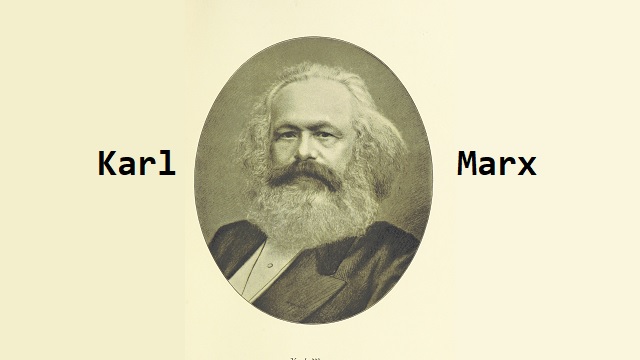

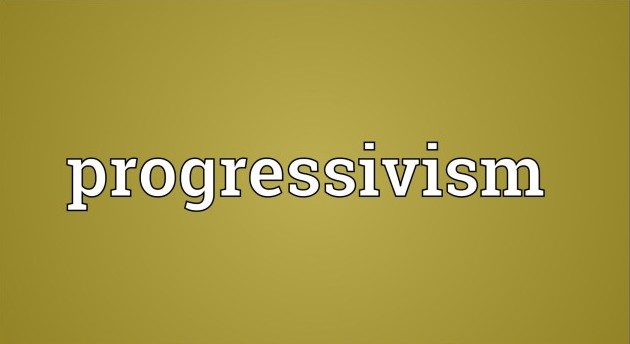


 Here is one such review:
Here is one such review:





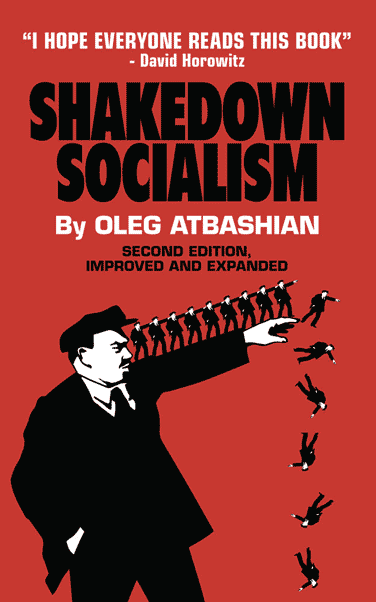

 Not only are
Not only are 


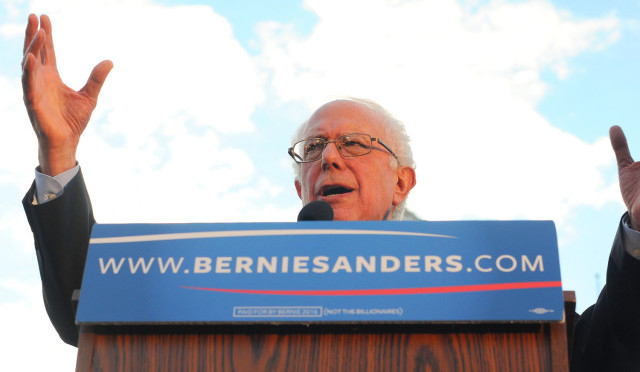






 As shown by the
As shown by the 






